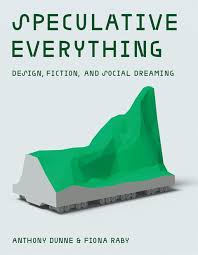Final Major Project | Secondary Research: Literature Review - 3
- Winnie Wong

- Sep 18, 2020
- 3 min read
Updated: Jan 14, 2021
After setting the timeline, I started to do literature research. I understood the history of money, the Fintech ecosystem, their business model and the challenges that they are facing.
As I know the topic of money is quite broad and the time is limited for me to consider all the aspects of this topic. Then, I decided to focus on the interaction and management of digital money.
Books 📚
Here is a list of books that I have used.
Through reading these books I got the definition of digital money as well as insights into its relationship with humans, the economy and society. To design for humans, I have to understand more about the psychological side of money. On the other hand, I read books that talk about the speculative design approach. It helps me brainstorm my ideas with a foresight mindset.
As a designer, we learn from what other experts are creating, but also to critically question the world. Where will new markets emerge over the next 5-10-25 years? What will be the big issues of the day? How will lifestyle, social mores, and policy adapt? And what role do we play in that future?
Papers 📃
For articles, I started from reading paper of "Speculative design: crafting the speculation" to get a better understanding od speculative design approach. Next, I researched some papers which are real cases for some countries, like India, UK and US. They are experiencing using digital money and transforming to be a cashless society. Then, I also read some articles which are related to the value of money. It helps me get more in-depth knowledges of money itself.
Documentaries 🎬
Here are the videos which I have watched. I love watching documentaries and I think it is a really good source for me to understand my topic in a deeper way. Throughout watching the below documentaries, I got a chance to see some real cases about money development in the US, China and the Philippines. Money is not just a tool for you to survive, it is more than this. It affects society, politics, culture, economy, etc...What if the world becomes cashless? The real cases of different countries helps me get some insights for my project.
Artifact analysis
After doing literature review, I did a artifact analysis, I found out the material, usage, look and stories of coins, banknotes, credit card, wallet, ATM, Bank and App. It is very useful to understand the stories and value of each related artifact. I think reimaging the form of money and its related artifact would be very interesting too.


Competitor analysis
I also did the competitor analysis of the traditional HSBC Bank app and a new Monzo App. Free banking, immediate notification, salary sorter, lower charge for borrowing, fast customer services become their key differentiates.

Insights
The most interesting thing is now most of the fintech companies believe in using AI as financial advisors and providing this service for their users. That makes me confused. It is because Money is something that human really care about their privacy. Nobody wants people to know how much exactly they have in their bank account. Not many people believe in AI and even human financial advisors. The only people they believe are themselves when it is related to money. This is the reason I think digital money should not be just on APP and mobile phone, because all our financial data of using those products are actually being monitored.
Please have a look at the next blog for further progress.
References 📖
Draudt, A. and West, J.R., 2018. What the Foresight: Your Personal Futures Explored: Defy the Expected and Define the Preferred.
Dunne, A. and Raby, F., 2013. Speculative everything: design, fiction, and social dreaming. MIT press.
Furnham, A., 2014. The new psychology of money. Routledge.
Vancouver
King, B., 2012. Bank 3.0: Why banking is no longer somewhere you go but something you do. John Wiley & Sons.
Lietaer, B., 2013. The future of money. Random House.
Sironi, P., 2016. FinTech innovation: from robo-advisors to goal based investing and gamification. John Wiley & Sons.
Sommers, C., 2012. Think Like a Futurist: Know what Changes, what Doesn't, and What's Next. John Wiley & Sons.











































Comments